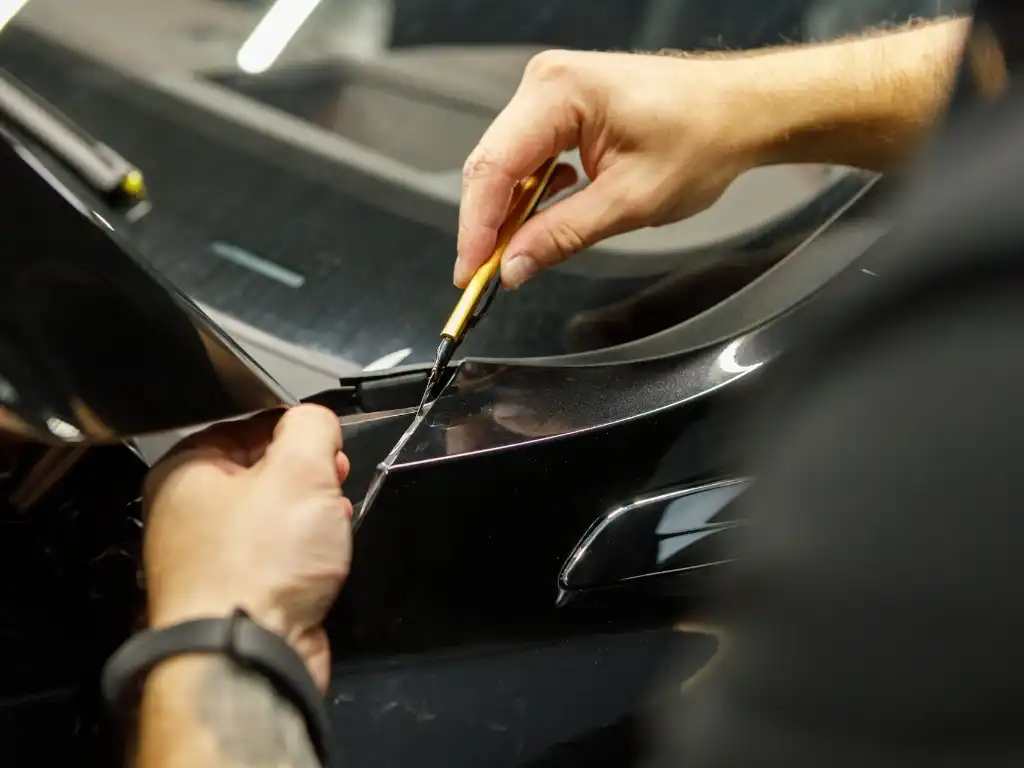Why Ceramic Tint Outperforms Regular Tint in Heat Rejection and UV Protection
Ceramic tint is a premium window film technology that significantly outperforms regular tint in terms of heat rejection and UV protection. Unlike traditional dyed or metallic tints, ceramic window films are made using advanced nano-ceramic particles that block a substantial amount of infrared heat without relying on dark shading or reflective metals. This technology allows ceramic tint to provide superior thermal insulation, making it an ideal choice for those looking to enhance the comfort and efficiency of their vehicle, home, or office. With its ability to filter out excessive heat while maintaining high visibility, ceramic tint has become a preferred solution for individuals seeking both performance and aesthetics. One of the most significant advantages of ceramic tint is its exceptional heat rejection capabilities. Infrared radiation from the sun is the primary source of heat buildup in enclosed spaces, and ceramic tint is designed to block up to 99% of these infrared rays. Regular dyed films, on the other hand, rely primarily on absorbing heat rather than reflecting it, which can cause them to fade over time and become less effective.

In addition to superior heat rejection, ceramic tint vs regular tint which can offers outstanding UV protection. Ultraviolet UV rays are known to cause skin damage, premature aging, and even increase the risk of skin cancer. Standard tints may reduce some UV exposure, but ceramic tint provides a more comprehensive solution by blocking nearly 99% of harmful UV rays. This level of protection is crucial for individuals who spend extended periods in their vehicles or near large windows, as it significantly reduces prolonged exposure to these harmful rays. It also helps protect the interior of vehicles and buildings by preventing fading and deterioration of upholstery, carpets, and furniture. Another major benefit of ceramic tint is that it does not rely on metallic components, which are commonly found in traditional reflective tints. Metallic tints can interfere with electronic signals, such as GPS, mobile phone reception, and radio frequencies, leading to connectivity issues. Ceramic window films, however, maintain excellent clarity and do not disrupt communication devices, making them an excellent choice for modern vehicles and smart home environments.
Durability is another factor where ceramic tint surpasses regular tint options. Dyed films tend to degrade over time, with exposure to sunlight causing them to fade, peel, or bubble. Ceramic tint, however, is engineered to be highly resistant to discoloration, maintaining its effectiveness and appearance for much longer. Its scratch-resistant surface also contributes to its longevity, ensuring that the film remains intact and continues to perform efficiently even in harsh conditions. This makes it a cost-effective investment in the long run, as it minimizes the need for frequent replacements. Lastly, ceramic tint enhances overall comfort and energy efficiency. The Clearpro window tinting service effectively reducing heat buildup, it helps lower reliance on air conditioning in vehicles and buildings, leading to improved fuel efficiency and reduced energy consumption. The ability to maintain a balanced indoor temperature makes it an environmentally friendly choice while also providing a more pleasant and comfortable atmosphere. With its combination of high-performance heat rejection, superior UV protection, signal clarity, and long-lasting durability, ceramic tint stands out as a superior alternative to traditional window films.